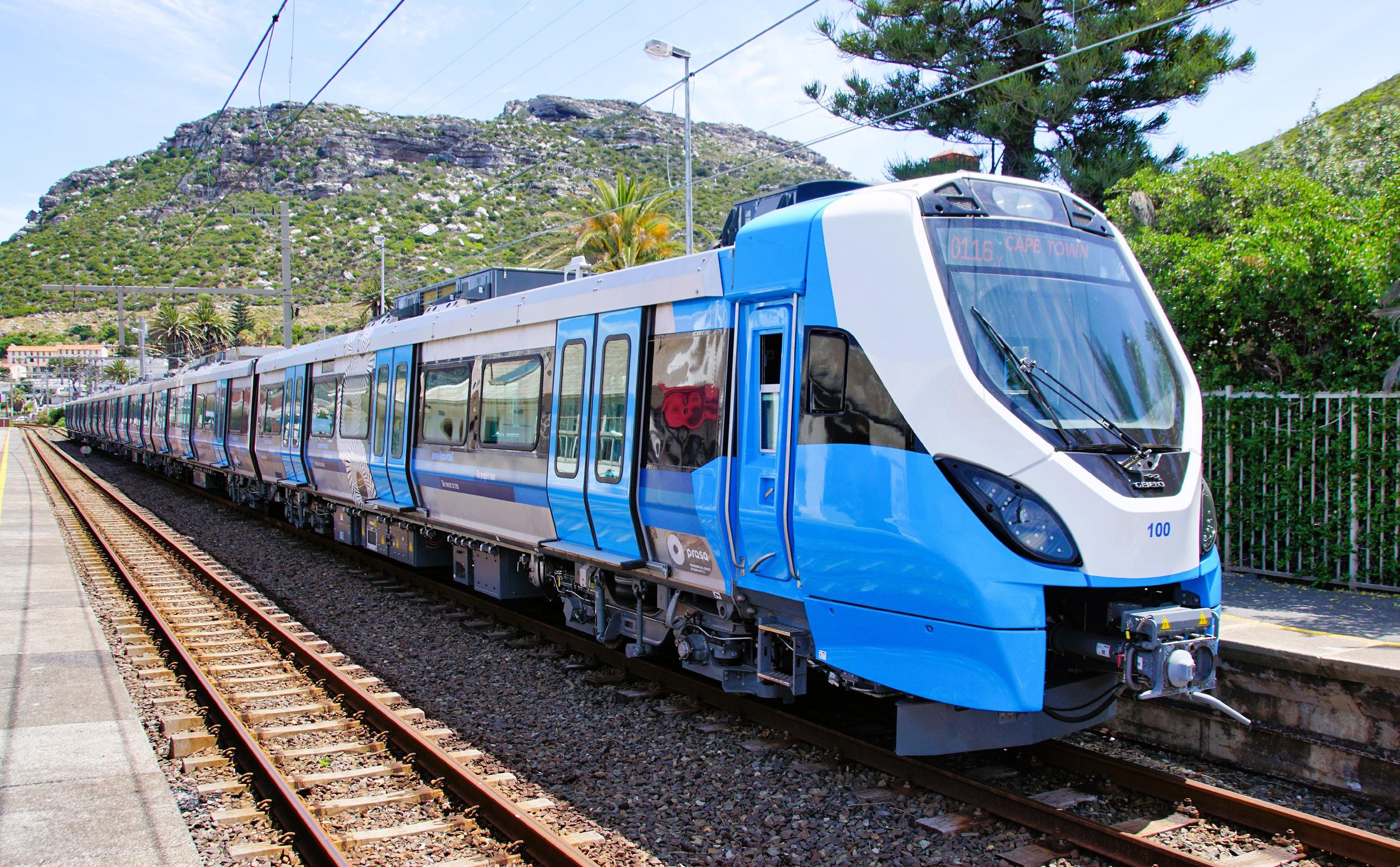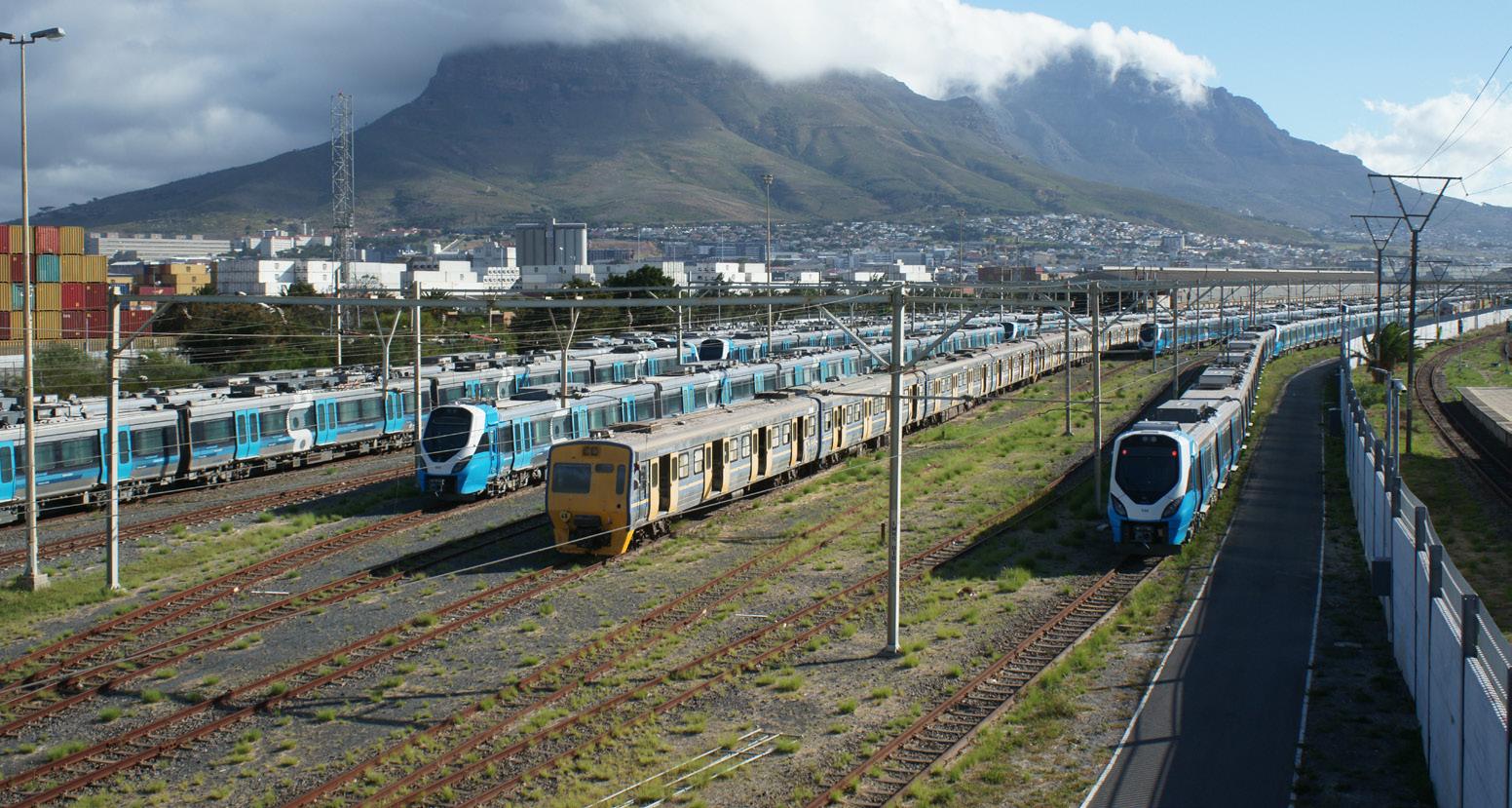
4 minute read
South Africa's Rail Revolution
Nearly 300 Trains Delivered To Transform Commuter Transit
By Jessie Taylor
South Africa’s railway renaissance is gaining remarkable momentum as Gibela, the Alstom-led consortium, closes in on delivering its 300th X’Trapolis Mega train set to the Passenger Rail Agency of South Africa (PRASA).
Developed through a landmark R51 billion contract signed in 2013, Gibela’s state-of-the-art Dunnottar facility, set up in partnership with PRASA, has become Africa’s largest modern train manufacturing plant. The milestone delivery marks a major achievement in fleet renewal and a triumph for local skills, economic development, and regional rail innovation.
World-class Manufacturing
Earlier this year, Gibela reached a significant achievement with the delivery of its 280th train set to PRASA, confirming that it remains firmly on track to reach the 300-unit milestone by the end of 2025. This represents half of the total 600 train sets prescribed under the contract. The planned delivery pace - approximately six train sets per month underscores Gibela’s impressive manufacturing ramp-up.
The 300-train threshold is symbolic: it’s not only a reflection of industrial capacity but a tangible force of transformation for urban mobility. As more train sets enter active service, commuters benefit from safer, faster, and more reliable transport - a pressing need after decades of underinvestment and system decline.
Gibela’s journey began with the initial 20 train sets, assembled at Alstom’s São Paulo plant, before full local production commenced in South Africa in 2017. The company’s purpose-built Dunnottar factory, established between 2016 and 2018, occupies some 78 ha and represents a R1 billion investment. Equipped with advanced seven-axis welding robots and lean production lines, the plant produces up to 62 cars per year, marking it as one of the fastest Electric Multiple Units (EMUs) production facilities worldwide.
In early 2024, Gibela confirmed that 284 EMUs had already rolled off the production lines, with further acceleration through the first half of 2025. This robust manufacturing rate speaks to operational efficiency and sustained demand from PRASA’s fleet modernisation programme.
From the project’s outset, localisation was central. As of May, Gibela reported 60 - 70% local content, with over R23 billion spent on South African suppliers. This has catalysed the expansion of local industry - from cabin doors to lighting systems - and even generated export orders for firms now entering Alstom’s global supply chain.
Knorr-Bremse South Africa, a key supplier of door and wiper systems, emphasises this shift: 97% local content for door leafs and 57% for mechanisms, with all components now manufactured near Johannesburg. Their facility adheres to European EN safety standards, embodying local innovation and global quality.
Moreover, Gibela’s training programmes have equipped hundreds of apprentices and interns with artisan and technical skills, particularly in communities surrounding the factory. This extensive skills infrastructure supports the current project and secures future capacity for maintenance and next-generation rail systems across Africa.
Transformative Impact On Commuters and Service Reliability
The introduction of the modern 6-carriage X’Trapolis Mega EMUs, designed with stainless steel bodies, air conditioning, CCTV, regenerative braking, and speeds up to 120 km/h, marks a leap in passenger experience. Their modular design supports capacity upscaling based on demand.
PRASA began integrating train sets into service from 2017 onwards, gradually replacing ageing fleets from the 1950s. As more units join the network, early data suggests enhanced reliability and comfort, although signalling limitations currently restrict average speeds to 30–40 km/h. PRASA plans to upgrade signalling systems to fully utilise the trains’ 120 km/h design speed.
With half of its contract fulfilled, Gibela is now eyeing expansion across Africa. According to Reggie Boqo, Acting CEO of the consortium, Gibela’s flexible production system is capable of meeting varying continental specifications including gauge differences and non-electrified routes. This positioning taps into the African Continental Free Trade Area (AfCFTA) opportunity to harmonise rail standards and connect cities. Gibela offers not just rolling stock, but depot operations, training, and component overhaul capabilities, positioning itself as a regional rail partner.
As Gibela delivers the 300th train set by year’s end, the programme stands as a case study in industrial policy, public-private partnership and localisation. It has fulfilled PRASA’s mandate to deliver cutting-edge commuter trains, revitalised domestic manufacturing, and nurtured Gauteng’s skill-rich ecosystem.
The road ahead includes delivering the remaining 300 trains, scaling maintenance capacity, upgrading infrastructure, and expanding into continental markets. Yet the train has clearly left the station, propelling public transit, industrial growth, and skills development onto a promising trajectory.


